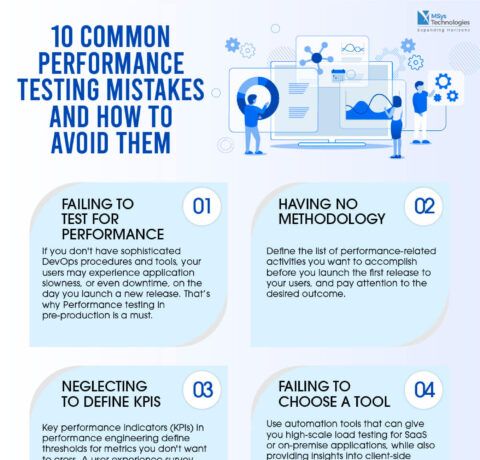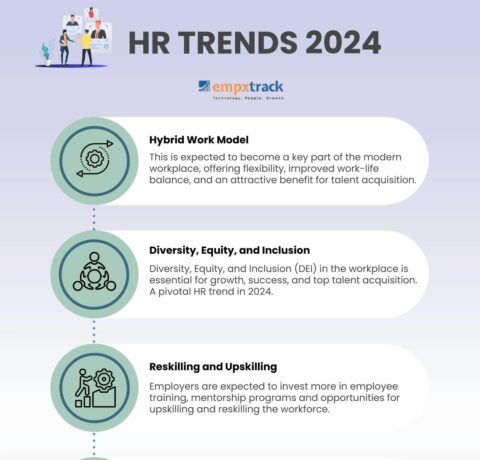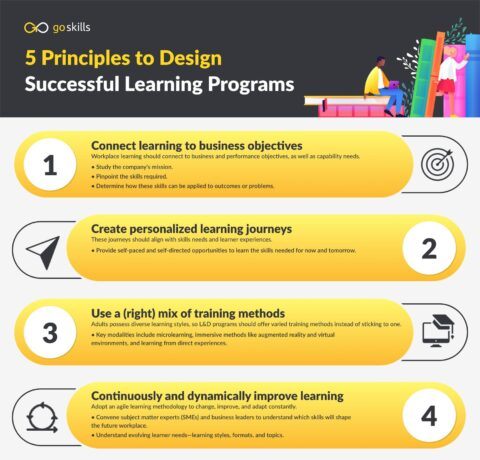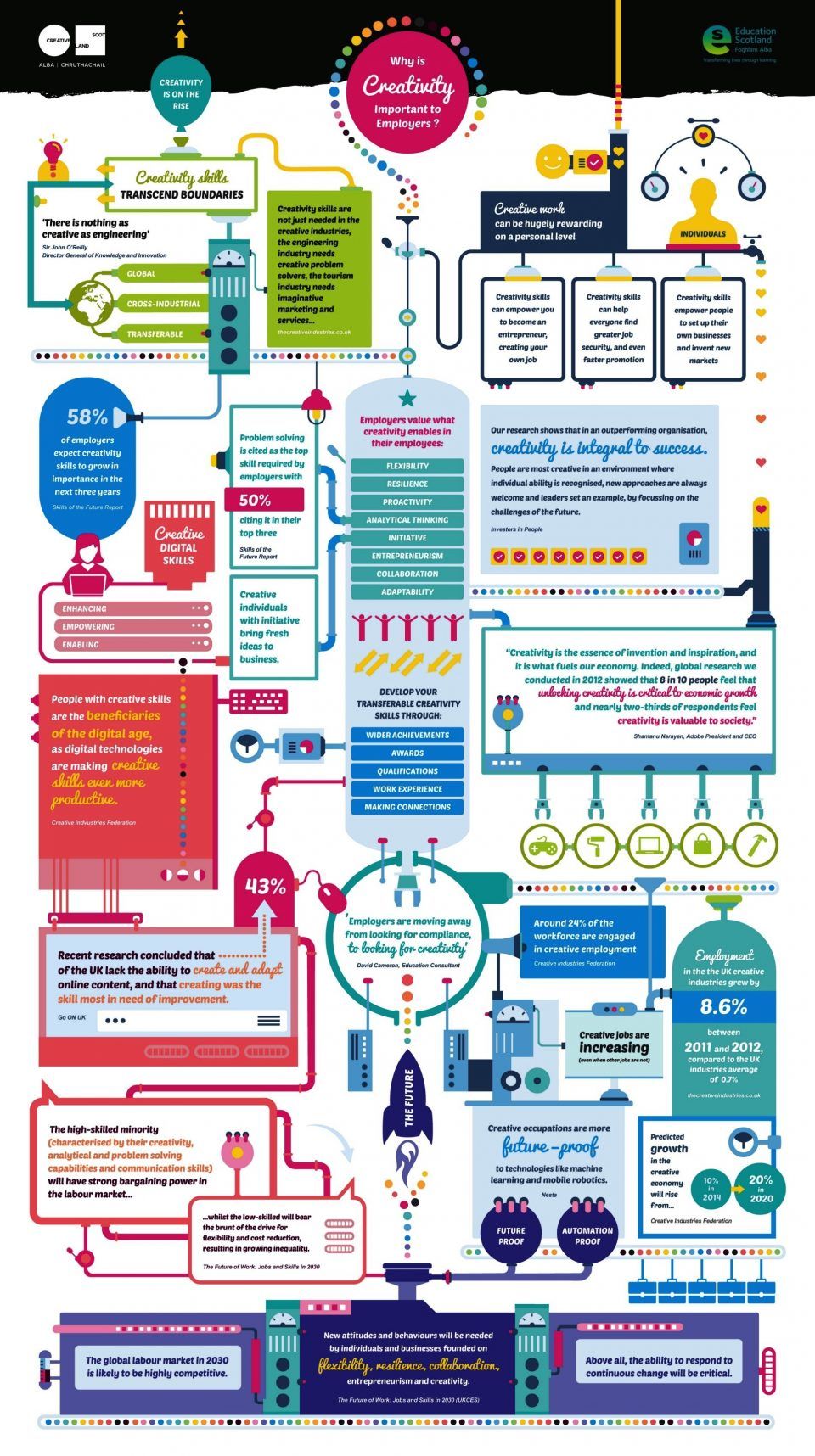Creativity and Employability Infographic
Education Scotland and Creative Scotland have developed a range of infographics exploring creativity skills. The Creativity and Employability Infographic shows how creativity skills and creative learning are front and centre in developing our young workforce – whether for jobs in the growth creative industries or becoming a ‘go getter’ in any place of work.
Why Creativity is Important to Employers?
Creativity skills are not just needed in the creative industries, the engineering industry needs creative problem solvers, the tourism industry needs imaginative marketing and services… 58% of employers expect creativity skills to grow in importance in the next three years. Problem solving is cited as the top skill required by employers with citing it in their top three.
Creative work can be hugely rewarding on a personal level:
- Creativity skills can empower you to become an entrepreneur, creating your own job.
- Creativity skills can help everyone find greater job security, and even faster promotion.
- Creativity skills empower people to set up their own businesses and invent new markets.
Creative individuals with initiative bring fresh ideas to business. Research shows that in an outperforming organisation, creativity is integral to success. People are most creative in an environment where individual ability is recognised, new approaches are always welcome and leaders set an example, by focussing on the challenges of the future.
Creativity is the essence of invention and inspiration, and it is what fuels our economy. Indeed, a global research conducted in 2012 showed that 8 in 10 people feel that unlocking creativity is critical to economic growth and nearly two-thirds of respondents feel creativity is valuable to society.
People with creative skills are the beneficiaries of the digital age, as digital technologies are making creative skills even more productive. Recent research concluded that 43% of the UK lack the ability to create and adapt online content, and that creating was the skill most in need of improvement. The high-skilled minority (characterised by their creativity, analytical and problem solving capabilities and communication skills) will have strong bargaining power in the labour market whilst the low-skilled will bear the brunt of the drive for flexibility and cost reduction, resulting in growing inequality
Employers are moving away from looking for compliance, to looking for creativity. Creative jobs are increasing. Around 24% of the workforce are engaged in creative employment. Employment in the the UK creative industries grew by 8.6% between 2011 and 2012, compared to the UK industries average of 0.7%. Creative occupations are more future –proof to technologies like machine learning and mobile robotics. Predicted growth in the creative economy will rise from 10% in 2014 to 20% in 2020.
The global labour market in 2030 is likely to be highly competitive. New attitudes and behaviours will be needed by individuals and businesses founded on flexibility, resilience, collaboration, entrepreneurism and creativity. Above all, the ability to respond to continuous change will be critical.







You can adjust your cookie preferences here.